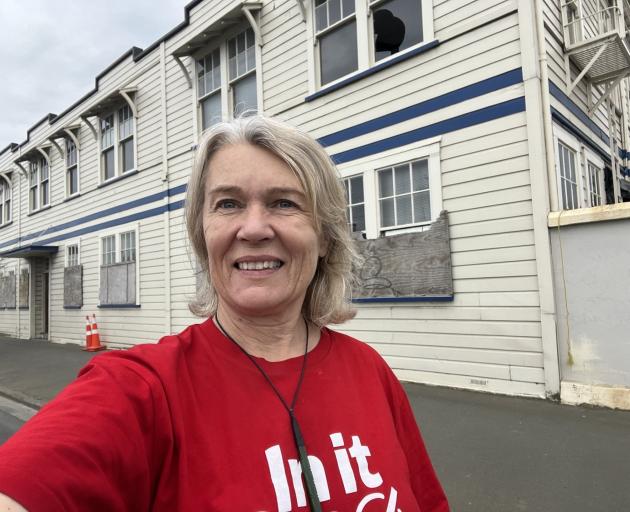

Well, so much for wishful thinking, as two weeks later we are still waiting for the National Party, New Zealand First and Act New Zealand to stop arguing about the positioning of the flags on their desks and actually start governing the country.
Does that matter, I hear you ask cynically? Well, just a little.
For a start, the new government has to decide what, if any, of the leftover business from the last Parliament it wishes to keep on its books.
When the last Parliament was dissolved there were 205 items of business before select committees, although many of those were routine matters of financial scrutiny.
However, they did some things of interest to us in the South — the inquiry into climate adaptation and the Sale and Supply of Alcohol (Cellar Door Tasting) Amendment Bill, to name just two.
The Order Paper still has 14 government orders of the day on it, although the chances of Dunedin Labour MP Rachel Brooking getting to speak to her two extant fishing Bills seem slim.
Half a dozen Members’ Bills are also still in play but most will need a new sponsor: Invercargill National MP Penny Simmonds in particular will be hoping she is in Cabinet and therefore barred from progressing her Medicines (Exemption For Authorised Prescribers) Amendment Bill.
More broadly, the machinery of the public service is still operating, managing state services and implementing the policies and projects of the previous government.
It will continue seamlessly when someone else takes over the tiller and asks it to change direction, or not.
Again, consider some more local examples.
The future of Tiwai Point aluminium smelter, both in terms of it remaining in business and managing its environmental impact, will be considered by a government with a different perspective to the previous one.
Housing issues in Queenstown and health provision troubles in Oamaru were under consideration last term and will have to be again.
In Dunedin, work continues on rebuilding the rail yards at Hillside, a project which two of the governing parties condemned and which one of them helped bring into being when last in Parliament.
And further up the road, work continues on building a new Dunedin hospital, a facility which all three parties — to varying degrees — have committed to building at the scope set out in its detailed business case, rather than any scaled back version proposed by the last government due to budget pressures.
Then there is the thorny issue of climate change and the response to it, a prime example of which has played out in South Dunedin this week.
As anyone who has walked down St Clair or St Kilda beach recently will know, the sea continues to nibble away at the land and has exposed some of the defences set up to try to keep it at bay.
Just beyond those dunes, on the other side of Victoria Rd, sits Forbury Park, the former home of harness racing in Dunedin.
On July 9, 2021, Hazer came last in the last race to be run at Forbury and the venue closed.

Several months ago, Dunedin architect Gary Todd’s company Seed Housing placed a caveat on the Forbury land, calling it "a catalyst site to unlock the stormwater infrastructure solution for South Dunedin".
Taieri Labour MP Ingrid Leary, who has taken an active interest in the disposition of Forbury Park, weighed in on the old track, calling it a "strategically important part of the climate change adaptation puzzle".
The low-lying land is flood-prone, and will be even more so if climate change causes sea levels to rise.
Towards the end of the last parliamentary term, Ms Leary was trying to broker a partnership in which all interested parties worked together to promote a future for the land and which considered it vital to find a way to manage climate change.
Labour went a step further in its election manifesto, saying it would work with councils in places like Marlborough and South Dunedin with "particular resilience challenges" to develop and implement plans to manage them.
For now, it lies on the table as to whether central government wants to play a role at all in any such management plan.
There is a new sheriff in town, and in August Ms Leary told the ODT in no uncertain terms that she did not think any other government would continue down the lines that Labour was.
"I’m not confident any alternative government would continue building on this conjoined approach, given National has voted against almost all Labour’s climate change initiatives this term ... and its likely coalition partner, Act, seems to be in climate change denial."
At least now, as of this week, a settlement has been reached so that the land can be sold — although to whom and for what remains a question for the future.
We will just have to wait and see whether Ms Leary’s prognostications are correct or not.
Act locally, think globally
A reminder that we may be small, but we have a voice.
Seven years ago, Leila de Lima, a senator from the Philippines, was arrested without trial and — until this week — imprisoned.
In 2019, the Dunedin branch of Amnesty International adopted Ms de Lima as its "prisoner of conscience" for that year and has been writing letters to support her ever since, mostly to the Secretary of Justice in Manila and to the President of the Senate of the Philippines.
This week, Ms de Lima was freed. Its role may have been small, but the Senator no doubt is grateful that some folk in far away Dunedin cared.











